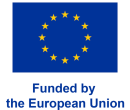At the 46th OIV Congress in Chisinau, Moldova, the Horizon Europe–funded project GrapeBreed4IPM, titled « Developing sustainable solutions for viticulture through multi-actor innovation targeting breeding for integrated pest management », was showcased in two oral presentations on June 17 and 18, highlighting its multi-faceted strategy to advance sustainable viticulture in Europe.
On June 17, Prof. Marc Dressler (University of Ludwigshafen / Weincampus Neustadt) presented in the Economy & Law session the results of a cross-country expert survey on Integrated Pest Management (IPM). The study compared IPM definitions, implementation status, and national strategies across six countries—France, Germany, Italy, Spain, Austria, and Switzerland. Findings reveal significant differences in focus and challenges, including potential threats to vineyard resilience due to regulatory constraints. Experts emphasized the importance of harmonized policies, economic incentives, and market-driven solutions to accelerate adoption of Functional Resistant Grapevines (FRGs) and Next-Generation Technologies (NGTs).
On June 18, Komlan Avia, project coordinator, introduced the GrapeBreed4IPM vision and strategy during the Viticulture session. His presentation focused on how the project leverages cutting-edge grapevine breeding to reduce fungicide dependence by developing disease-resistant varieties. Through a unique multi-actor co-design process involving stakeholders from seven countries, GrapeBreed4IPM aligns scientific innovation with practical needs. Beyond breeding, the project promotes tailored IPM protocols, training, decision-support tools, and socio-economic assessments to support sustainable transformation across Europe’s vineyards.
Together, both presentations underscored GrapeBreed4IPM’s integrative approach—bridging science, policy, and practice—to foster biodiversity, climate resilience, and long-term sustainability in viticulture.
More about GrapeBreed4IPM
GrapeBreed4IPM “Development of sustainable solutions for viticulture through multi-actor innovation oriented to genetic improvement for integrated pest management” started in April 2024 and will last 4 years, ending in March 2028.
The National Institute for Agronomic, Food and Environmental Research (INRAE) is leading the project in collaboration with 19 international partners and 2 associated partners: Julius Kühn-Institut – German Federal Research Center for Cultivated Plants; Istituto di Genomica Applicata; Edmund Mach Foundation; French Institute of Vine and Wine; Fribourg State Institute of Viticulture; INRAE Transfert; Ludwigshafen University of Business and Society; Rauscedo Cooperative Nurseries; Horta; Ministry of Economy, Transport, Agriculture and Viticulture; Wine Technology Platform; National Interprofessional Committee for Wines with Designation of Origin and Geographical Indication; NEIKER; Mercier, pépiniériste viticole; Association of German Grapevine Plant Producers e. V.; Working Group for the promotion of fungus-resistant grape varieties; Moët Hennessy; Institute of Primeneutics of Polopriverdi; the Research Institute of Organic Agriculture and Foncalieu Vineyards.
For its implementation, GrapeBreed4IPM has a budget of €5.000.000 received from the European Union under the Horizon Europe funding program (grant number 101132223), plus €600,000 received by an associated partner from the Swiss government.
























